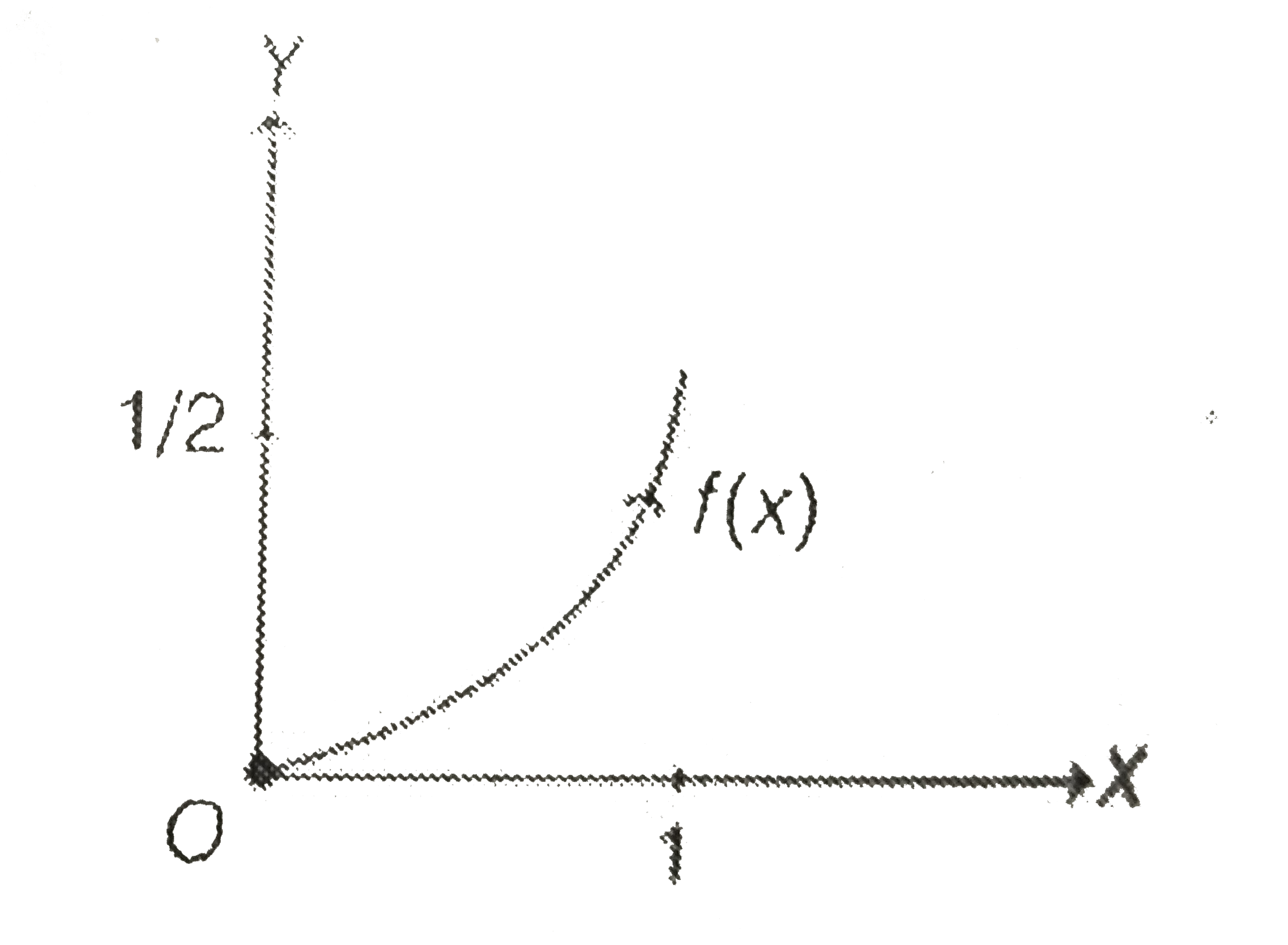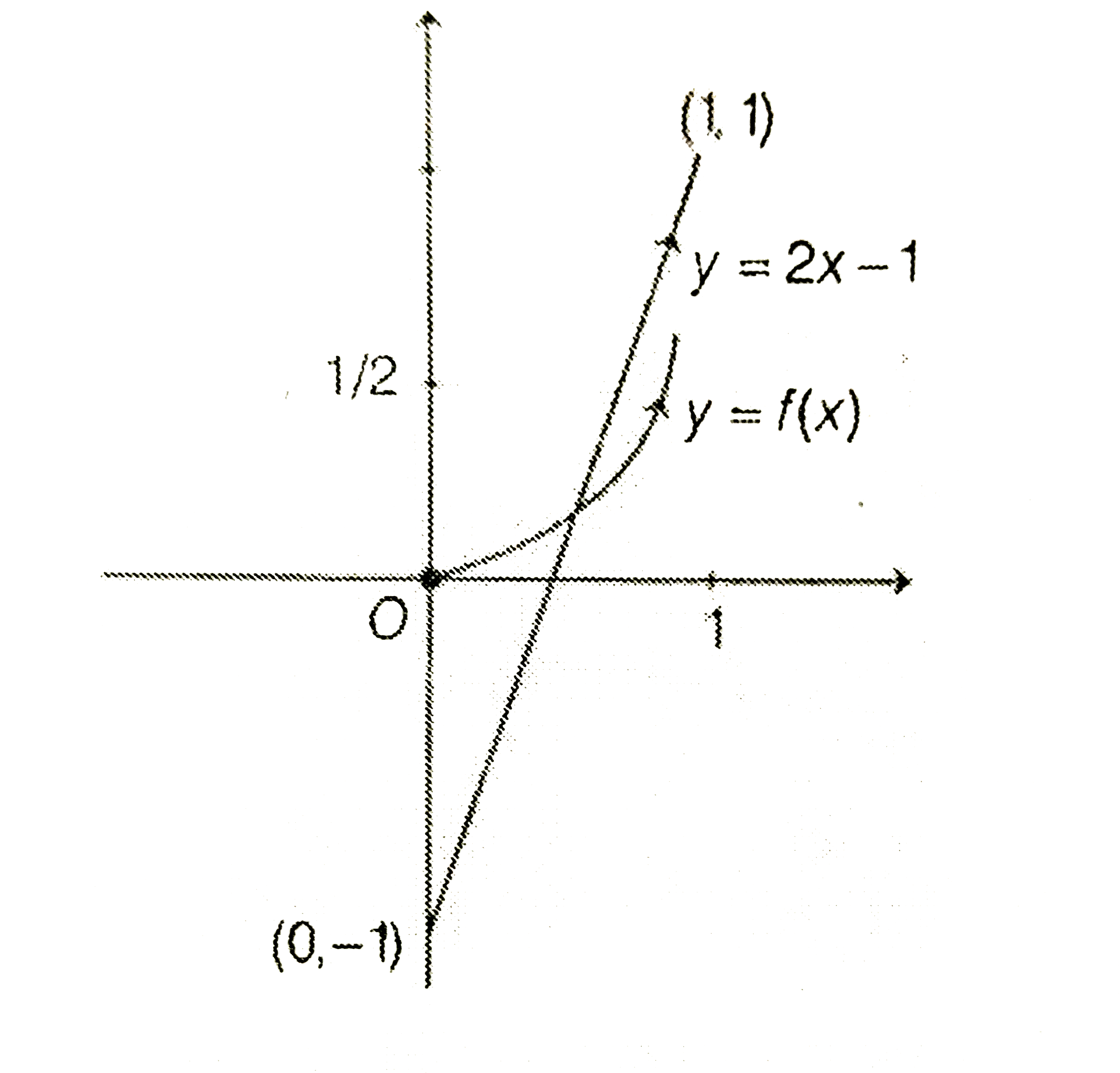The total number of distinct x∈(0,1] for which x∫0t21+t4dt=2x−1 is
Video Solution
Text Solution
The correct Answer is:1
Let f(x)=∫x0t21+t4dt⇒f'(x)=x21+x4>0, for all x∈[0,1]
∴f(x) is increasing.
At x=0,f(0)=0and at x=1,
f(1)=∫10t21+t4dt
Because, 0<t21+t4<12⇒∫100⋅dt<∫10t21+t4dt<∫1012⋅dt
⇒0<f(1)<12
Thus, f(x) can be plotted as

∴y=f(x)andy=2x−1 can be shown as

From the graph, the total number of distinct solutions for x∈(0,1]=1. [as they intersect only at one point]
|
Updated on:21/07/2023
Topper's Solved these Questions
- BOOK - IIT JEE PREVIOUS YEARCHAPTER - MISCELLANEOUSEXERCISE - MISCELLANEOUS87videos
MISCELLANEOUS
- BOOK - IIT JEE PREVIOUS YEARCHAPTER - MATRICES AND DETERMINANTSEXERCISE - SOLVING SYSTEM OF EQUATIONS (INTEGER ANSWER TYPE QUESTION)2videos
MATRICES AND DETERMINANTS
- BOOK - IIT JEE PREVIOUS YEARCHAPTER - PARABOLAEXERCISE - TOPIC 4 DIAMETER, CHORD OF CONTACT, CHORD BISECTED AND PRODUCT OF PAIR OF TANGENTS OBJECTIVES QUESTION II (ANALYTICAL & DESCRIPTIVE )5videos
PARABOLA
Similar Questions
Knowledge Check
- Question 1 - Select One
If f(x)=∫x2dt1+t4, then
Af(3)<117Bf(3)>117Cf(3)=117Df(3)>1 - Question 2 - Select One
Consider the function f : (−∞,∞)→(−∞,∞) defined by f(x) = x2−ax+1x2+ax+1,0<a<2
Let g(x)=ex∫0f'(t)1+t2dt
Which of the following is true ?Ag'(x) is positive on (−∞,0) and negative on (0,∞)Bg'(x) is negative on (−∞,0) and positive on (0,∞)Cg'(x) changes sign on both (−∞,0) and (0,∞)Dg'(x) does not change sign on (−∞,∞) - Question 3 - Select One
For x∈(0,5π2) define
f(x) = x∫0√tsintdt
Then has :Alocal maximum at π and 2πBlocal minima at π and 2πClocal maximum at π and local maximum at 2πDlocal maximum at π and local minimum at 2π
Total number of distinct xε[0,1] for which ∫x0t8+1t8+t2+1dt=3x−2 is ______
View SolutionLet F(x)=∫x0(t−1)(t−2)2dt
View SolutionLet f be a real-valued function on the interval (-1,1) such that e−xf(x)=2+x∫0√t4+1,dt,∀x∈(−1,1) and let f−1 be the inverse function of f. Then [f−1(2)] is a equal to:
View SolutionIf xϕ(x)=x∫5(3t2−2ϕ(t))dt,x>−2 and ϕ(0)=4 then ϕ(2) is __________
View SolutionLet f(x)=∫x13t1+t2dt, where x>0, Then
View Solution

